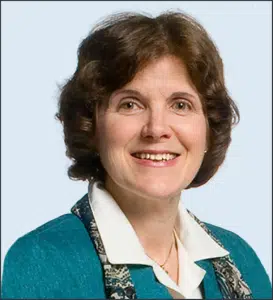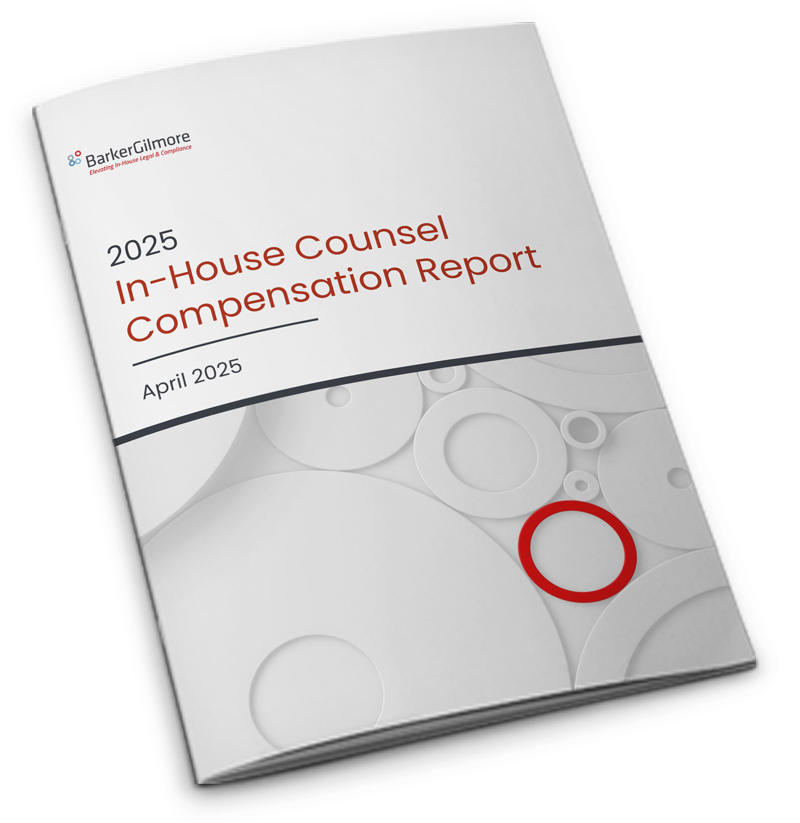 Maureen Brundage most recently served as Executive Vice President, General Counsel, Corporate Secretary & Chief Ethics Officer of The Chubb Corporation, which was one of the largest publicly traded U.S. property and casualty insurers and also had significant operations in 24 countries around the globe. One of only four direct reports to its CEO, Maureen led a global team of 135 lawyers, overseeing legal, regulatory, compliance and corporate secretarial functions. During her decade-long tenure, she also played a critical role in its $28 billion acquisition by ACE including involvement in negotiations, integration planning, internal communication, and transition management. Prior to joining Chubb, Maureen was a partner at White & Case, where she headed the Global Securities Law Practice Group and a global staff of more than 150 lawyers. In addition to leading the group, Maureen represented domestic and international companies in diverse industries with regard to securities offerings, mergers, acquisitions, divestitures and other corporate transactions, as well as advising on corporate governance, crisis management, SEC reporting, and general corporate matters. Currently serving on the Board of Directors and Audit Committee of MAPFRE U.S.A. Corp., the U.S. holding company of MAPFRE S.A., the global insurance company, Maureen is also a Director and Audit Committee Member of MAPFRE’s subsidiaries: The Commerce Insurance Company, Massachusetts’ largest private passenger automobile insurance writer; and Citation Insurance Company. Maureen adds her expertise to the strategic counsel, leadership development, succession planning and other services BarkerGilmore advisors provide to legal and compliance departments, CEOs, and boards across the country.
Maureen Brundage most recently served as Executive Vice President, General Counsel, Corporate Secretary & Chief Ethics Officer of The Chubb Corporation, which was one of the largest publicly traded U.S. property and casualty insurers and also had significant operations in 24 countries around the globe. One of only four direct reports to its CEO, Maureen led a global team of 135 lawyers, overseeing legal, regulatory, compliance and corporate secretarial functions. During her decade-long tenure, she also played a critical role in its $28 billion acquisition by ACE including involvement in negotiations, integration planning, internal communication, and transition management. Prior to joining Chubb, Maureen was a partner at White & Case, where she headed the Global Securities Law Practice Group and a global staff of more than 150 lawyers. In addition to leading the group, Maureen represented domestic and international companies in diverse industries with regard to securities offerings, mergers, acquisitions, divestitures and other corporate transactions, as well as advising on corporate governance, crisis management, SEC reporting, and general corporate matters. Currently serving on the Board of Directors and Audit Committee of MAPFRE U.S.A. Corp., the U.S. holding company of MAPFRE S.A., the global insurance company, Maureen is also a Director and Audit Committee Member of MAPFRE’s subsidiaries: The Commerce Insurance Company, Massachusetts’ largest private passenger automobile insurance writer; and Citation Insurance Company. Maureen adds her expertise to the strategic counsel, leadership development, succession planning and other services BarkerGilmore advisors provide to legal and compliance departments, CEOs, and boards across the country.
What are the hot-button issues in today’s legal departments?
With disruptors currently impacting virtually all categories and aspects of business, legal departments are no exception. Alternative service providers and the predominance of technology are challenging the traditional delivery of legal services and affecting not only law firms, but in-house legal teams as well. A noteworthy example involves a technology company’s recent decision to outsource a significant portion of its legal department to an alternative legal service provider. Although I do not think this signals the demise of the in-house legal department, GCs, and legal departments need to be mindful of this shift. It’s important for legal departments to be relevant by demonstrating their positive contributions to the achievement of the company’s strategic vision, bringing added value to the organization, and serving as trusted business partners. The legal team must understand the business and its goals, be strategic in its approach, improve operating efficiency and, where possible, reduce costs; this includes the need to understand and embrace technology to enhance productivity.
Another hot-button issue for legal departments is their role as a moral compass, determining and safeguarding the culture of their organizations, and helping to mold as well as monitor that corporate culture. Time and time again, we read of situations where a company is in trouble, and the cause seems to emanate from the company’s culture. The question then arises: where were the attorneys and why didn’t the legal department sound the warning bell? While it’s essential for legal departments to be partners with the business in achieving corporate goals, and not to be the department of “no,” they must also perform the role of guardian of the company’s reputation and integrity. A balance of these roles is not easy to achieve; however, it’s not only imperative but expected by the Board of Directors, shareholders, and regulators.
What are some of the challenges you faced in your executive role and how did you resolve them?
Like most every executive and, in particular, every GC, I continually faced having to do more with less; controlling and often reducing costs was a top priority. I needed to use existing resources creatively, employ them throughout the organization, break down silos, and eliminate redundancies while identifying resources within the company for the legal team join to forces with on particular matters. I also needed proactively to assess areas and find efficiencies, and to determine if there was a better way to build the mousetrap before the number crunchers requested me to do so. To increase efficiency and productivity, I focused my team on high-value rather than low-value work, creating tools and using technology to streamline tasks. These efforts improved the department’s performance and, perhaps more importantly, demonstrated to the business executives our resolve to positively contribute to the bottom line.
A related challenge was how to invigorate and retain top talent in a flat organization with few promotional opportunities and budgetary constraints limiting compensation. To deal with this, I held periodic meetings with my management team to discuss our staff, including identifying top talent, flight risks, and those who would be hard to replace. To the extent possible, we would differentiate performance through reviews and compensation and creatively recognize good performers. For example, corporate VP and higher titles were extremely limited; for assistant VPs within the legal department, I created the new departmental title of “senior associate counsel,” in addition to the existing “associate counsel” title, which provided a promotional opportunity. I was also not shy about making sure that GC top performers got involved in cross-department, high profile projects, which served as a development opportunity and gave them exposure outside the department.
Another significant challenge was the acquisition of Chubb, which required me to wear many hats over an extended period, including getting the deal signed, and finalized and then working on the integration process. During this period, I also had to focus, and get others to focus, on business as usual especially as a public company. Perhaps more importantly, I assisted my team, and others across the company, in sorting through the ramifications of the merger to them. Doing all these things at the same time required remaining calm under pressure and focused on what we needed to achieve for the good of the organization as well as its people.
In what ways did you make the biggest impact on the company you served? What are your proudest accomplishments?
When I joined Chubb, the General Counsel Department was generally dysfunctional, had significant morale problems and unconnected silos, and was not well respected by the business areas. Using a multifaceted plan, I improved cooperation and communication across the Department; helped GC members to earn the respect of their business counterparts; and created teams with members from different areas and in different locations to work on various Departmental projects. I tasked one team with conducting a client assessment of the Department, which resulted in actionable client feedback. It also allowed team members to get to know one another and to meet other business executives. The fact that we proactively asked our business colleagues for input enhanced the Department’s relationship with them and our overall reputation.
I am also proud of helping so many Chubb colleagues across the organization through the merger and dealing with its traumatic impact on them, both professionally and personally. My door was always open to listen and try to help guide others through the uncertainty and underscored for me the fact that “counsel” is essential to the GC title. I also pressed for more communications to be sent to Chubb employees to keep them informed during the long period ahead of the closing. For those in my Department, I went into sales mode, trying to ensure they had a position in the post-merger company if they wanted it. I also have stayed in touch with many after I left Chubb, trying to make sure they were doing well and providing advice when requested. On several occasions, even as recently as last week, I have been touched by a former Chubb colleague thanking me for what I did in that time at Chubb.
How have you helped others succeed?
To help someone develop and succeed, you need first and foremost to know them. I am a big believer in the importance of listening, which I think is an underrated skill. I have always taken time to listen to what others are saying, and sometimes what they are not saying; it helps you truly understand what the person cares about and what motivates them. I also observed the person in action, getting insights into their strengths, and areas for improvement. Once I understood the person and his or her capabilities, I empowered them to do their job. My role was not to micromanage them but to be a resource as needed. Also, I tried to give stretch assignments to find what someone could do if challenged and provide exposure for them within the organization. All of these efforts were part of the learning and growth process; sometimes you learn more from your missteps than from your successes.
One thing I think is important to note is that “success” is not necessarily synonymous with “promotion” or “advancement.” Sometimes you succeed by staying in place. Often promotions require someone to be a manager, and not everyone wants to manage, and not everyone is good at it. I have helped people recognize what they are good at and what they want to do at a particular point in their lives, which may mean that they stay where they were, or move laterally, or even move outside the company. That I believe has helped them succeed.
What do you think differentiates top GCs from the others?
There is a reason the word “general” is part of the GC title — you need to oversee a whole host of different matters.
- Top GCs understand that they are not, and cannot be, an expert on everything and they cannot have their hands in everything. They need to know and rely on the expertise of their team and empower them to run with matters.
- Top GCs set up mechanisms to ensure they are kept up to speed on what they need to know and not the minutiae.
- Top GCs take the time to learn the business and its strategic goals and look for ways to help the business achieve those goals.
- Top GCs are strategic and focus resources where it matters the most from a business perspective.
- Top GCs instill in their teams the importance of working with their business colleagues to get to “yes,” while still mitigating risk and acting as a gatekeeper for the organization.
What is typically the most significant area for development for a GC?
For many GCs, especially first-time GCs, it is hard to let go of matters, in particular, those within their area of expertise, or higher profile ones. They generally have been tactical and detail oriented and feel a sense of accomplishment in seeing a matter to completion. But as GC, you need to focus on the bigger picture and be strategic. You need to delegate whenever you can to your team, and trust in their abilities. Just because you can do something does not mean you should do something (even if you could do it faster or better); you need to get involved only when it is critical to do so. Doing this will enable the GC to get out of the weeds and to focus on more critical issues.
In your role as a BarkerGilmore advisor, where do you see yourself adding the most value to GCs?
Throughout my career, I have focused on coaching and developing my team, others within the organization, and even those outside of it. Learning from both my successes as well as my failures, I can be of value in coaching GCs, their heirs apparent, and others on the team. I can guide a GC who has been promoted from within or help with the transition of a new GC or another senior team member from outside the company, including from private practice. Knowing the importance of optimizing resources and the delivery of services, I can help GCs evaluate the structure and organization of their department to determine strengths, weaknesses, and areas for improvement; assess existing talent and assist with techniques to retain high performers; address talent gaps; and develop succession plans. With my GC background, as well as my recent advisory experience, I bring an objective and practical perspective to figure out what we can and cannot get done, both near and longer term. I can also help guide GCs through periods of change, whether caused by routine cost-cutting initiatives or more significant merger transactions.
Connect with a legal recruiting advisor
* indicates required fields




